第32章 Chapter IX. Somebody Attends to the Door.(2)
As a mark of respect on her part, she offered the armchair to him: it was the one comfortable seat in the neglected place. He insisted that she should take it; and, searching the summer-house, found a wooden stool for himself. The small circular room received but little of the dim outer light--they were near each other--they were silent. Sydney burst suddenly into a nervous little laugh.
"Why do you laugh?" he asked good-humoredly.
"It seems so strange, Mr. Linley, for us to be out here." In the moment when she made that reply her merriment vanished; she looked out sadly, through the open door, at the stillness of the night. "What should I have done," she wondered, "if I had been shut out of the house by myself?" Her eyes rested on him timidly; there was some thought in her which she shrank from expressing.
She only said: "I wish I knew how to be worthy of your kindness."
Her voice warned him that she was struggling with strong emotion.
In one respect, men are all alike; they hate to see a woman in tears. Linley treated her like a child; he smiled, and patted her on the shoulder. "Nonsense!" he said gayly. "There is no merit in being kind to my good little governess."
She took that comforting hand--it was a harmless impulse that she was unable to resist--she bent over it, and kissed it gratefully.
He drew his hand away from her as if the soft touch of her lips had been fire that burned it. "Oh," she cried, "have I done wrong?"
"No, my dear--no, no."
There was an embarrassment in his manner, the inevitable result of his fear of himself if he faltered in the resolute exercise of self-restraint, which was perfectly incomprehensible to Sydney.
He moved his seat back a little, so as to place himself further away. Something in that action, at that time, shocked and humiliated her. Completely misunderstanding him, she thought he was reminding her of the distance that separated them in social rank. Oh, the shame of it! the shame of it! Would other governesses have taken a liberty with their master? A fit of hysterical sobbing burst its way through her last reserves of self-control; she started to her feet, and ran out of the summer-house.
Alarmed and distressed, he followed her instantly.
She was leaning against the pedestal of a statue in the garden, panting, shuddering, a sight to touch the heart of a far less sensitive man than the man who now approached her. "Sydney!" he said. "Dear little Sydney!" She tried to speak to him in return.
Breath and strength failed her together; she lifted her hand, vainly grasping at the broad pedestal behind her; she would have fallen if he had not caught her in his arms. Her head sank faintly backward on his breast. He looked at the poor little tortured face, turned up toward him in the lovely moonlight.
Again and again he had honorably restrained himself--he was human; he was a man--in one mad moment it was done, hotly, passionately done--he kissed her.
For the first time in her maiden's life, a man's lips touched her lips. All that had been perplexing and strange, all that had been innocently wonderful to herself in the feeling that bound Sydney to her first friend, was a mystery no more. Love lifted its veil, Nature revealed its secrets, in the one supreme moment of that kiss. She threw her arms around his neck with a low cry of delight--and returned his kiss.
"Sydney," he whispered, "I love you."
She heard him in rapturous silence. Her kiss had answered for her.
At that crisis in their lives, they were saved by an accident; a poor little common accident that happens every day. The spring in the bracelet that Sydney wore gave way as she held him to her; the bright trinket fell on the grass at her feet. The man never noticed it. The woman saw her pretty ornament as it dropped from her arm--saw, and remembered Mrs. Linley's gift.
Cold and pale--with horror of herself confessed in the action, simple as it was--she drew back from him in dead silence.
He was astounded. In tones that trembled with agitation, he said to her: "Are you ill?"
"Shameless and wicked," she answered. "Not ill." She pointed to the bracelet on the grass. "Take it up; I am not fit to touch it.
Look on the inner side."